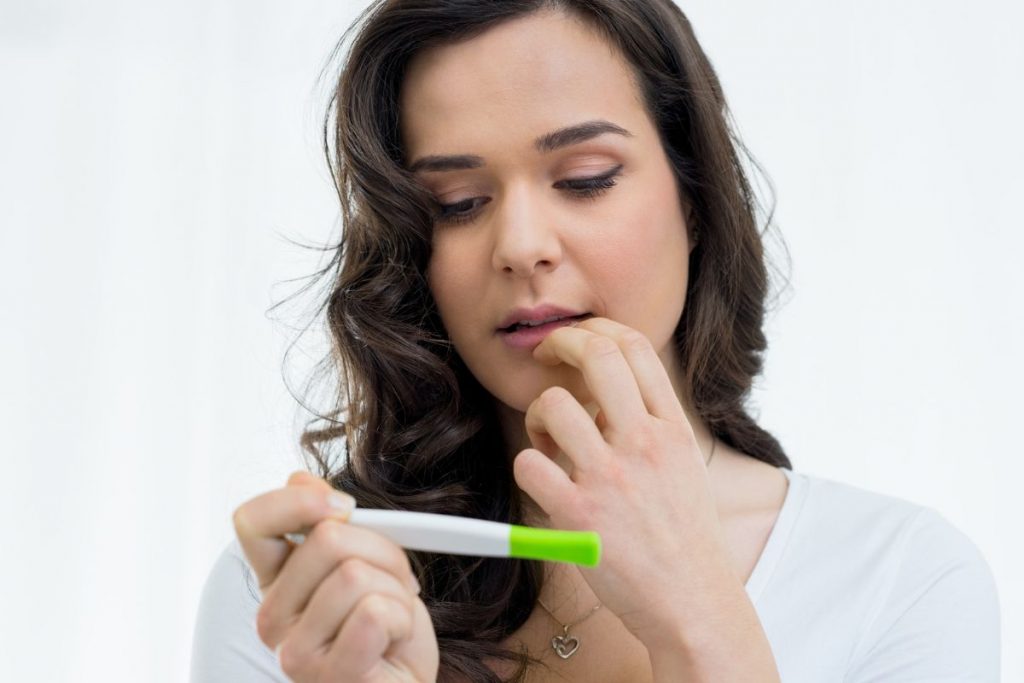
You are finally ready to start your family and you want to avoid months of disappointment. This is the guide for you. Avoid these common fertility mistakes when you’re trying to get pregnant.
Common Fertility Mistakes
1. Assuming you know when you ovulate
First of all, you have to figure out when you ovulate. Many people make assumptions about ovulation that aren’t true. Some people think their period tracker can tell them when they’re ovulating. Period trackers are only making a guess based on how many days your average cycle is. Your actual ovulation might be several days earlier or later than that guess. Other people use changes in cervical mucus to determine when they’re ovulating.
Studies have shown that a peak cervical mucus can be 4 days earlier or later than your actual ovulation. However, it’s possible to have a cervical mucus change and not ovulate at all, so it’s not a great tool by itself. You can combine changes in cervical mucus with a basal body temperature to have a pretty accurate indication of ovulation.
Take your basal body temperature at the same time each morning, before you get out of bed. Your temperature should dip, then rise about 0.5-1 degrees and stay high. That dip is the day before your ovulation and the rise is after you have ovulated.
The best way to know when you ovulate is to use ovulation predictor kits. The cheap urine strips work fine for this purpose. You’ll want to use them first thing in the morning, since your urine is most concentrated at that time. The strip will detect the presence of luteinizing hormone (LH). Your LH will ‘surge’ or rise sharply the day before you ovulate.
2. Timing intercourse
If you are using intercourse to try to conceive, the general recommendation is to have intercourse every other day for about five days before and a couple of days after ovulation. Spacing out intercourse a little bit can improve sperm quality. But you don’t want to wait longer than 5 days between ejaculating because that is associated with a reduced sperm count.
Sperm can survive in the uterus and fallopian tubes for up to five days, and it has been shown to be beneficial to have sperm in the system before ovulation. Having sex in the morning can also be beneficial, as sperm will have regenerated overnight. All that said, the best time to have sex is when you feel like it!
3. Trying to lose weight when you’re trying to conceive
Though it used to be common for doctors to recommend that overweight people lose weight before trying to conceive, recent research from the University of Virginia shows that, for people with a BMI higher than 30, losing weight did not improve their chances of getting pregnant. Also, severely restricting calories can disrupt the menstrual cycle and prevent pregnancy.
That said, we do recommend that you aim for a whole-foods based Mediterranean-style diet with plenty of protein. This type of diet helps to maintain relatively even blood sugar levels while getting enough nutrients to fuel your reproductive system. High blood sugar can cause inflammation throughout the body and lead to poor egg and sperm quality.
4. Not prioritizing sleep
Sleep is crucial for both egg and sperm development. Lack of sleep triggers the body to produce more cortisol. This, in turn, can lead to changes in sex hormone production and fertility. Having too much cortisol in your body can also impact your melatonin production. Melatonin is responsible for our sleep-wake cycles, but it also plays a role in producing high-quality eggs. Studies have shown lack of sleep can lead to low sperm count and poor morphology, or shape, of the sperm, reducing fertility.
5. Over- or under-exercising
When you’re trying to conceive, men and women have different needs for exercise. Research shows that people who produce eggs should limit their exercise to mild-moderate a few times per week. Intense exercise even once per week can reduce fertility in people who produce eggs. For people who produce sperm, the opposite has been shown to be true – any amount of exercise is good!
6. Forgetting about endocrine disruptors in your environment
There are a lot of endocrine disruptors in our homes, cars, and workplaces. Some of the easiest ones to change are cleaning products (look for non-toxic, environmentally friendly cleaners, detergent, fabric softener, and dryer sheets) and body care products (soap, lotion, anything you put on your skin). Look for products without parabens, phenols, phthalates, or fragrances.
Lastly, try to take all plastic out of your kitchen – don’t cook food with plastic utensils, don’t store warm or hot food in plastic, and don’t reheat food in plastic. Choose stainless steel, ceramic, or cast iron pots and pans to avoid chemicals leeching into your food while you cook.
7. Waiting until you’re pregnant to stop smoking or drinking
Nicotine, cannabis, and alcohol all impact fertility in different ways. Nicotine has been shown to reduce sperm quality and produce DNA abnormalities, whereas cannabis can reduce sperm concentration. Nicotine can damage eggs and is associated with an increased chance of ectopic pregnancy. Second-hand smoke is almost as damaging as smoking and can lead to a significantly longer time to conceive. Cannabis can delay or prevent ovulation.
While it’s not clear how much alcohol should be considered safe, even ‘light drinking’ can reduce the chances of conception. Alcohol can also impact sperm quality and DNA abnormalities, as well as cause impotence and lowered libido. Any substance that impacts the DNA of either sperm or eggs can increase the chances of miscarriage due to genetic abnormalities.
The good news is that both eggs and sperm are responsive to lifestyle changes, so people who stop smoking and drinking a few months before trying to conceive have a better chance of getting pregnant.
8. Underestimating the effect of stress
Studies show that stress impacts fertility, so now is the time to work on your anti-stress habits. Strategies like getting outside, moving your body, journaling, and enjoying some relaxation time can all help alleviate stress. If you’re having difficulty conceiving, though, you might have to look harder at where you can cut stress out of your life – maybe this year you take an intimate vacation with your partner during the holidays instead of gathering with stressful (if well-meaning) relatives.
Can you cut any non-essential volunteer activities? Is it possible to temporarily cut back your hours or responsibilities at work? Can you outsource some of your chores, like yardwork or cleaning? Can you avoid social media for a while if you find yourself envious of everybody else’s baby pictures? Every little bit helps take the load off of you so you can focus on conceiving.
9. Underestimating the effect of both partners’ general health on fertility
There are many factors that can affect both partners’ fertility: medications, smoking, alcohol, diet, genetics, etc. It’s a great idea for both partners to check in with their doctor and see if there are any concerns. Some things your doctor may check:
- your blood pressure
- your diabetes status
- whether you are experiencing depression
- bloodwork for sexually transmitted infections and other fertility factors
Your doctor will check on any prescriptions and over-the-counter medications you are taking, in case they are contraindicated during pregnancy (your doctor may switch you to a different medication). Your doctor may ask you about your family health history (so talk to your relatives if you don’t know your family health history) and recommend some vaccinations if you are not up to date. He or she can advise you on when and how to stop using birth control. You should also see your dentist and make sure your teeth and gums are healthy.
We’re happy to help guide you toward the best things you can do to help you get pregnant! To learn more about how we can help, email us.
Established patients can schedule online, patients who haven’t seen us at Kwan Yin Healing Center call (503) 701-8766, or email us to schedule your appointment.




